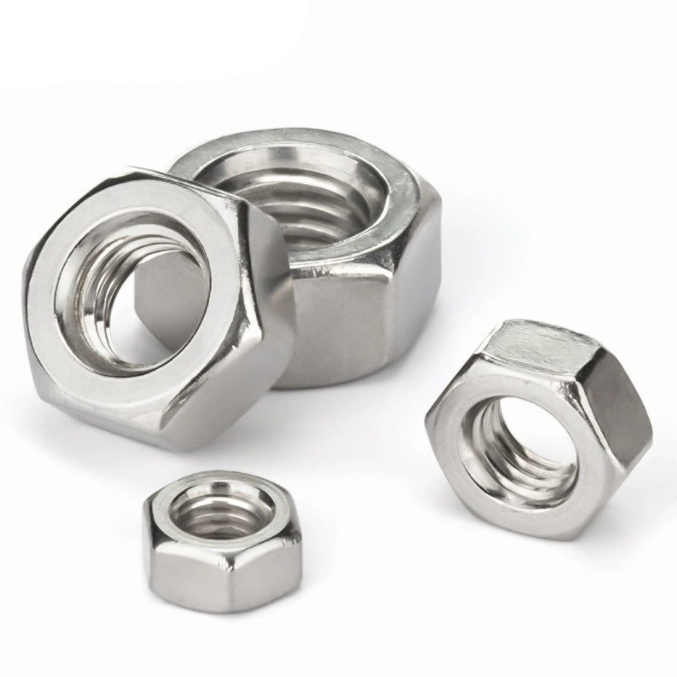

comparison between stud bolts and machine - a fastener
Dec . 04, 2024 18:23 Back to list
comparison between stud bolts and machine - a fastener
Comparison Between Stud Bolts and Machine Bolts A Fastener Analysis
Fasteners are essential components in engineering and construction, serving to join materials together securely. Among the various types of fasteners, stud bolts and machine bolts are two of the most commonly used. While they may seem similar at first glance, significant differences set them apart in terms of design, application, and functionality. This article provides a comprehensive comparison between stud bolts and machine bolts, highlighting their unique features and use cases.
Definition and Design
Stud bolts consist of a long cylinder with threads at both ends, which allows them to be used with nuts. They provide a high degree of strength and can accommodate heavy loads, making them ideal for applications requiring strong mechanical connections. Typically, stud bolts are used in high-pressure environments, such as in pipelines, pressure vessels, and structural connections.
On the other hand, machine bolts, also known as hex bolts, feature a head on one end and threads on the opposite end. The head is often hexagonal, allowing for easy tightening with a wrench. Machine bolts are versatile and can be used in a variety of applications, including machinery assembly, automotive components, and general construction. The design of machine bolts lends itself well to applications that require easy installation and removal.
Load Distribution and Strength
Due to their design, stud bolts excel in scenarios that demand high tensile strength. The ability to secure two components via threads on both ends means that load distribution is more even, reducing the risk of stress concentrations that can lead to failure. This characteristic makes stud bolts particularly effective in high-stress environments.
Machine bolts, while still capable of bearing significant loads, are generally better suited for applications involving lateral forces. The presence of a head allows for the application of torque, making it easier to achieve secure fastening. However, they may not be the best choice for extremely high-load applications where stud bolts would outperform them.
Installation and Removal
comparison between stud bolts and machine - a fastener

One of the practical differences between stud bolts and machine bolts lies in their installation and removal processes. Stud bolts require the use of two nuts for proper fastening, which can complicate the setup. The installation process often demands more time and careful alignment, especially in tight spaces.
Conversely, machine bolts are easier to install and remove because of their single-headed design. They can simply be inserted through a pre-drilled hole and secured with a corresponding nut. This simplicity makes machine bolts a preferred choice for assembly lines and situations where components need to be frequently adjusted or replaced.
Application Areas
Given their distinct characteristics, stud bolts and machine bolts find usage in different industries and applications. Stud bolts are frequently employed in industries such as oil and gas, chemical processing, and power generation, where high pressures and temperatures are common. Their durability and resistance to corrosion have made them a staple in applications requiring reliability.
Machine bolts, however, are more commonly found in construction, automotive, and manufacturing industries. Their versatility permits use in a wide range of applications, from securing structural components in buildings to assembling machinery and equipment.
Conclusion
In summary, while both stud bolts and machine bolts serve the essential purpose of securing components together, they do so in different ways that cater to specific needs and applications. Stud bolts are preferred for high-load, high-pressure environments where strength and durability are critical, while machine bolts offer versatility, ease of installation, and suitability for a wider range of general applications.
Choosing between stud bolts and machine bolts ultimately depends on the requirements of the particular project at hand, including the nature of the loads involved, installation logistics, and the overall environment in which the fasteners will be used. Understanding these differences enables engineers and designers to make informed decisions that enhance the reliability and performance of their projects.
Latest news
-
Hot Dip Galvanized Bolts-About LongZe|High Strength, Corrosion Resistance
NewsJul.30,2025
-
High-Strength Hot Dip Galvanized Bolts - Hebei Longze | Corrosion Resistance, Customization
NewsJul.30,2025
-
Hot Dip Galvanized Bolts-Hebei Longze|Corrosion Resistance&High Strength
NewsJul.30,2025
-
High-Strength Hot-Dip Galvanized Bolts-Hebei Longze|Corrosion Resistance&High Strength
NewsJul.30,2025
-
Hot Dip Galvanized Bolts-Hebei Longze|Corrosion Resistance&High Strength
NewsJul.30,2025
-
Hot Dip Galvanized Bolts - Hebei Longze | Corrosion Resistance, High Strength
NewsJul.30,2025

